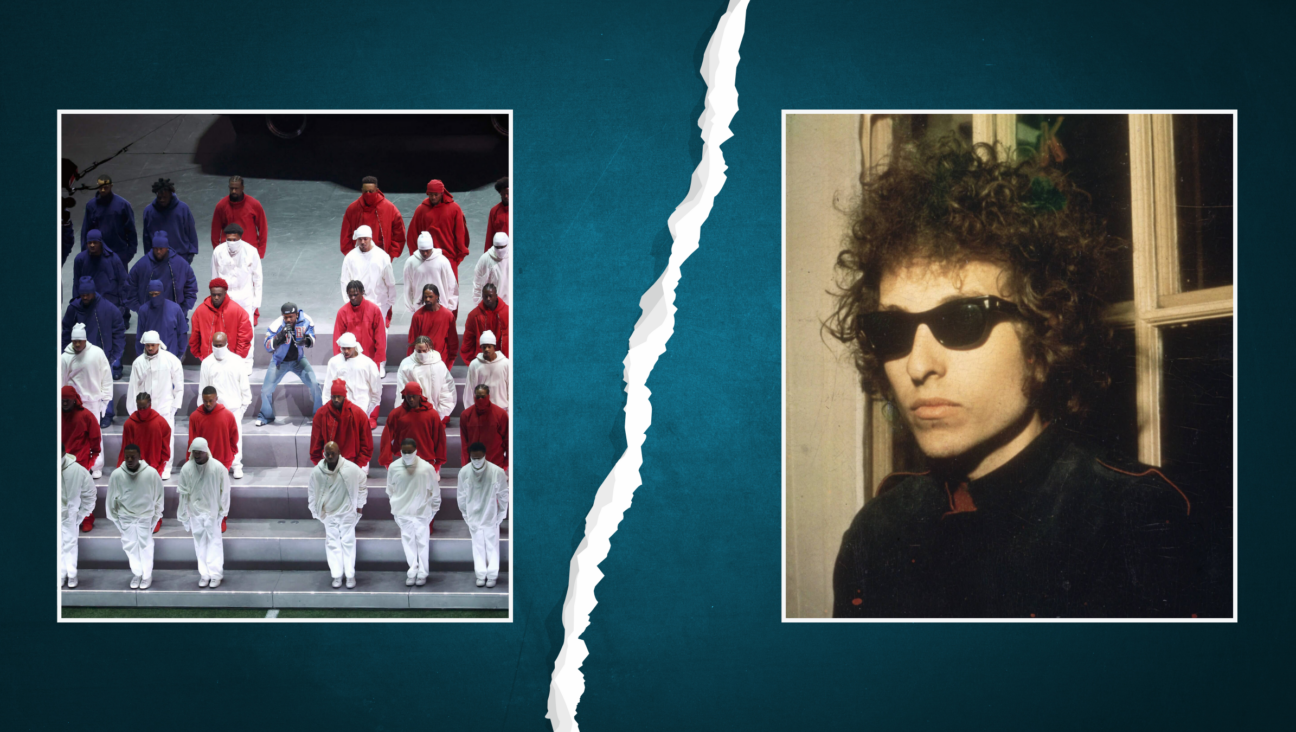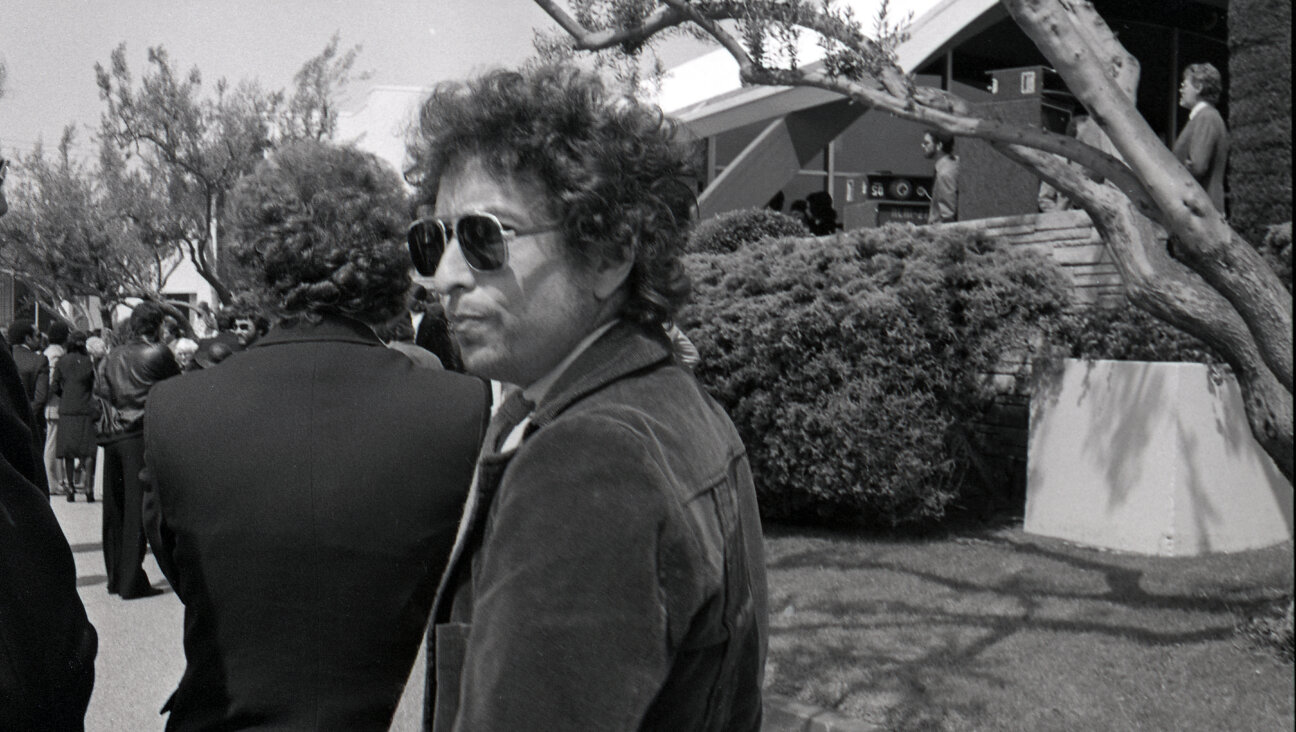A ‘Dachau’ song so shocking and transformative, there’s nothing else like it

Captain Beefheart Image by Getty Images
Inspired in part by all the Jewish artists on Rolling Stone’s list of the 500 Greatest Songs, the Forward decided it was time to rank the best Jewish pop songs of all time. You can find the whole list and accompanying essays here.
“Some white folks think it’s hip to have Blacks in their band. I have Jews, man. They understand suffering.” Thus spoke Don Van Vliet (aka Captain Beefheart) years ago, on the cusp of my joining his Magic Band in 1980. He wasn’t kidding, either (well, maybe a little). But “Dachau Blues” is no joke. Surely it is the single most shocking, convincing evocation of the Holocaust ever committed to music of any sort. The only other comparison I can think of — for sheer sonic mayhem suffused with righteous Jewish anger — is Arnold Schoenberg’s “A Survivor from Warsaw.”
That “Dachau Blues” was composed and sung by a non-Jewish person boggles the mind (you could describe Van Vliet’s religious outlook as pantheistic, tempered by a healthy streak of animism).
“Dachau Blues” (from Beefheart’s 1968 album “Trout Mask Replica”) is such strong meat that its awesome power engendered two rather extreme responses I shall bear witness to. While an undergrad at Yale in the early 1970s, a fellow student friend of mine played this song to a very sensitive intellectual Jewish woman he was dating. The song’s overwhelming maelstrom of creepiness actually made her vomit in disgust.
Some years later a good friend here in the West Village wanted to rid himself of a pair of bossy roommates who were back from a European sojourn and intent on taking over and muscling him out of his own apartment. Upon hearing his tale of woe, I suggested he play “Dachau Blues” at 6 a.m. at the loudest volume possible. That did the trick. The couple were blasted awake and immediately freaked out and threatened to call the cops or professional medical help. To no avail. My friend stood his ground and kept on playing this song — and by 6 p.m. that same day, the smarmy pair had vacated the premises for good.
In 1810, German author Heinrich von Kleist wrote a memorable short story — “St. Cecilia, or The Power of Music” — about a group of anti-religious zealots who attack a Catholic convent but are rendered neutral (in fact are driven insane) by an orchestra of nuns playing the “Gloria in Excelsis” from an old Italian Mass. Similarly, nothing, I mean nothing, on this earth can withstand the relentless transformative power and provocation of “Dachau Blues.”
Gary Lucas is a nice Jewish boy (sometimes) who was hailed as “One of the best and most original guitarists in America … a modern guitar miracle” by Rolling Stone, which recently named his song “Grace” (co-written with Jeff Buckley) as “One of the 500 Greatest Songs of All Time.”
Join us at 7:30 PM on Wednesday, Feb. 16, for a spirited discussion of the Greatest Jewish Pop Songs of All Time featuring Forward contributing editor and author Seth Rogovoy; executive editor Adam Langer; former Vibe and Spin editor-in-chief of Vibe, Alan Light; DJ and SirusXM host Hesta Prynn; novelist and screenwriter Jennifer Gilmore; and Forward contributing music critic Dan Epstein. Register here:
A message from our Publisher & CEO Rachel Fishman Feddersen

I hope you appreciated this article. Before you go, I’d like to ask you to please support the Forward’s award-winning, nonprofit journalism so that we can be prepared for whatever news 2025 brings.
At a time when other newsrooms are closing or cutting back, the Forward has removed its paywall and invested additional resources to report on the ground from Israel and around the U.S. on the impact of the war, rising antisemitism and polarized discourse.
Readers like you make it all possible. Support our work by becoming a Forward Member and connect with our journalism and your community.
— Rachel Fishman Feddersen, Publisher and CEO





























